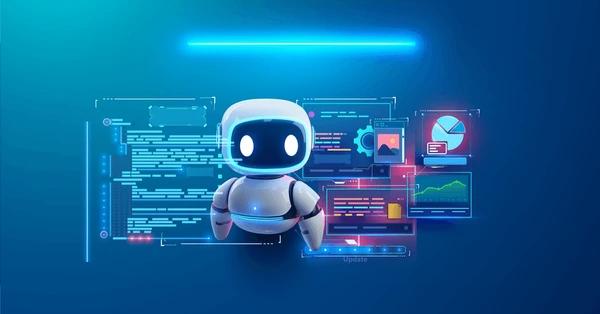
In recent years, Ahmedabad has emerged as a dynamic hub for industrial growth, with its warehousing and logistics sectors seeing rapid expansion. As e-commerce, retail, and manufacturing businesses scale their operations, the need for efficient, technology-driven warehousing solutions has grown exponentially. Enter smart warehousing—an AI-powered approach that revolutionises how goods are stored, forecasted, and routed. Artificial Intelligence (AI) is helping businesses predict demand more accurately and plan smarter distribution routes, leading to lower costs and faster deliveries. For aspiring tech professionals, enrolling in an AI course in Ahmedabad is a timely opportunity to participate in this exciting transformation.
Let’s explore how AI is reshaping warehousing operations in Ahmedabad, with a focus on demand forecasting and routing optimisation.
The Shift Toward Smart Warehousing
Traditional warehousing in India has typically involved manual data entry, static inventory management, and reactive logistics. These models often lead to stockouts, overstocking, delayed deliveries, and increased operational costs. With consumer expectations growing and same-day deliveries becoming more common, businesses can no longer afford these inefficiencies.
Ahmedabad, with its strategic location and expanding industrial zones, is seeing a shift toward smart warehousing—enabled by AI, Internet of Things (IoT), and cloud computing. These technologies help warehouses transition from reactive models to predictive and autonomous systems that offer real-time visibility, automation, and data-driven decision-making.
AI for Demand Forecasting
AI is widely used for forecasting purposes in smart warehousing. Using machine learning algorithms, warehouses can analyse large volumes of historical sales data, seasonal trends, market signals, and even weather patterns to predict future product demand.
For instance, a warehouse in Ahmedabad catering to textile exporters can use AI to forecast peak seasons based on festival calendars and previous years’ shipment patterns. Similarly, FMCG warehouses can prepare for demand spikes before holidays or promotional events.
AI models such as time series forecasting, regression analysis, and neural networks help:
Anticipate changes in consumer demand
Adjust procurement and inventory levels in advance
Reduce stockouts and overstock scenarios
Improve warehouse space utilisation
This kind of predictive insight leads to better planning and fewer operational disruptions. Students pursuing an AI course often work on similar forecasting models during their training, preparing them to implement real-world solutions in industries like retail and logistics.
AI-Driven Routing Optimization
In addition to demand forecasting, routing optimization is another critical area where AI is driving efficiency. Once products are ready to be shipped, selecting the most efficient route is essential for timely and cost-effective deliveries.
AI algorithms consider multiple real-time variables such as traffic conditions, road closures, delivery time windows, vehicle load capacity, and fuel consumption to determine the best routes. This is particularly useful in a city like Ahmedabad, where rapid urbanisation can lead to fluctuating traffic patterns and road infrastructure changes.
By integrating AI with GPS and telematics systems, logistics companies can:
Reduce fuel consumption and delivery times
Increase on-time delivery rates
Minimise carbon emissions
Change the route of vehicles as per real-time conditions
Ahmedabad-based logistics firms are beginning to adopt these solutions to gain a competitive edge in speed and reliability. This creates a growing demand for AI professionals who can build and maintain such intelligent systems.
Real-World Implementation in Ahmedabad
Several warehousing and logistics companies in and around Ahmedabad are already experimenting with AI-powered platforms. These range from AI-assisted barcode scanning and predictive maintenance of machinery to smart inventory management systems that automatically reorder stock when levels fall below a threshold.
The Gujarat government’s emphasis on industrial innovation, supported by initiatives like GIDC (Gujarat Industrial Development Corporation) and plug-and-play warehouse facilities, is further encouraging technology adoption. This creates a fertile ground for startups and tech professionals to introduce AI-driven tools across warehousing operations.
Career Opportunities in AI-Enabled Logistics
The rise of smart warehousing is creating significant job opportunities in AI, especially in logistics and supply chain roles. Businesses are hiring data analysts, machine learning engineers, and AI developers to manage everything from forecasting models to route optimisation algorithms.
Taking an AI course is an ideal choice for those aiming to enter this field. These courses typically cover the fundamentals of machine learning, data handling, algorithm development, and AI deployment—often tailored with projects related to supply chain optimization and logistics analytics.
Conclusion
Smart warehousing is not just a futuristic concept—it’s already being implemented in Ahmedabad to address modern logistics challenges. AI is playing a pivotal role in enabling demand forecasting and routing, helping businesses operate more efficiently and meet customer expectations in real time.
With the city’s warehousing sector on the rise and a growing appetite for intelligent solutions, there has never been a better time to build a career in this domain. Enrolling in an AI course in Ahmedabad provides learners with the skills and exposure needed to contribute meaningfully to this evolving industry. As logistics becomes smarter, AI professionals will continue to be the driving force behind Ahmedabad’s digital transformation in warehousing.






Write a comment ...